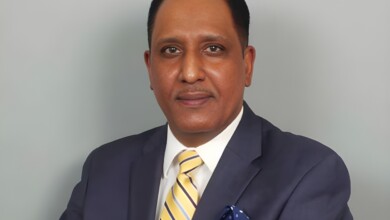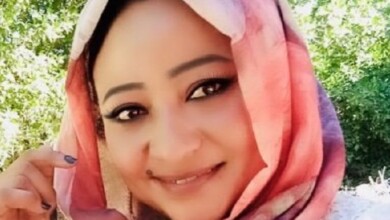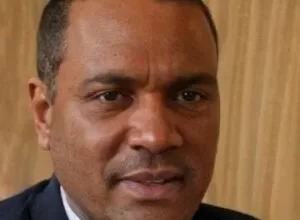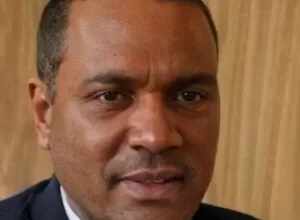The Sudanese Communist Party: The divorce took place when the Party’s representation was no longer the people’s
Ibrahim Matar

“The years passed rather quickly. For not long ago, we were in our youthful years, full of enthusiasm and hope, we were certain that one day we would change the world. Our young hearts were filled with determination and perseverance, and we trusted the anthems inspired when they made promises to us. We were also confident in a better future for our country, and in our ability to contribute to building a nation whose bright sun would be kind to those who move beneath it, hoping to achieve what would satisfy their yearning and aspirations for that longed-for and hoped-for tomorrow.” My friend, a former member of the Sudanese Communist Party (SCP), stated with regret, and I repeated to him, laughing, the words of the poet Hashim Siddiq: “When I was young and inexperienced, I was fascinated by Guevara, Solara, Jomo, and Nizar. I was fascinated by the heroes of the left.”
My friend shared that their involvement in leftist student organizations at universities was their gateway to knowledge and to choosing their side in the conflict with the murderous “Brotherhood of the Devils.” He added, “That was in the first half of the (1990s). University classes were suspended after just one month and only resumed after nine months, which were difficult for us. We looked forward to engaging in political activity, which was previously only permitted on campus, after the students’ will wrested it from the clutches of the criminal Movement. The students paid the price in the form of murder, arrest, torture, and expulsion; however, they maintained the freedom of political activity within the university as an inalienable right that is not subject to negotiation or blackmail. We salute and respect them for taking such a stance.”
He continued: “We had no curricula or path other than openly calling for rights and preventing the Brotherhood’s encroachment upon them. We relied on peaceful means in doing so, hoping that this slow method, due to the severe repression that faced the leftist parties in the first years of the Salvation (Inqaz) rule, would make a difference in society’s view of the regime and break the barrier of fear after how many years the people wish to wait. At the time, we were of one heart, messengers of civility, peacefulness, and other lofty terms.” He went on to state, “We were singing along with the singer: (The weapon is merely a weapon/ It could never defeat a cause/ And it could never transform the ugliness into beauty/ When the guns open fire directly at the chest of the revolutionists/ It invites darkness to the morning light/ The bullet is defeated when the chests bright with love, smile/ And sing to the night and the wounds.)”
He emphasized that their depths were screaming the melody and words before tongues and lips, and they believed they were in agreement in their visions of what should be in a nation with multiple ethnicities, religions, and cultures. Furthermore, he posed the question, “What happened? What divided us in such a manner? Did the Sudanese Communist Party suddenly change following the outbreak of the (April 15th) War to become a supporter of Ali Fadul’s killers? Did the Party leadership, throughout the decades under the Salvation (Inqaz) Government’ rule, undergo these transformations little by little? Or did it happen like this one sudden blow? Was it a nightmare that haunted our peaceful dreams?.” He then mentioned a poem recited by Muzaffar Al-Nawwab once, in disappointment: (Once again, I stretch my heart out near the river, an alley/ Once again, I bow the nightmares in my heart in half/ I light the candles alone/ And I meet them from a distance as we’re no longer comrades/The divorce took place when the Party’s representation was no longer the people’s).
We had no choice but to tell the truth and pay the price, steadfastness in the secret and public prisons of the Brotherhood of the Devils, restrictions on living and means of earning a living, they fought us with poverty and favoritism, and reached the point of physical torture in ghost houses, as we sang along with the singer: (Neither whips shake our certainty/ Nor prisons of darkness block the path of those who work hard for their beliefs/ Not even the rose of blood in our hearts will one day be withered by the wind).
He continued, “We relied on steadfastness and supported said steadfastness with anthems. However, what is the point of it all if the Party today is siding with the criminal, Ali Karti, whose hands are stained with the blood of innocents? And for racist reasons that are the furthest thing from the Sudanese people who abhor injustice and the oppressors.”
I mentioned to my friend the leftist, Abdullah Ali Ibrahim’s statement that “The war must continue without using the lives of civilians as pretext, because they are a fundamental party to the battle, and its natural that they die.” Indeed, this is what Abdullah said from his safe and distant exile, harboring a specific mental image of these civilians whose deaths are harmless. He couldn’t possibly have meant by this insignificant mass death his immediate family and relatives. I went as far as to remind him that the communists who openly support Al-Baraa Ibn Malik Brigades today, have -for years- claimed to be against militarism, the rifle, and bloodshed. One of the “expatriate” leftists asked on Facebook, “I wonder, where are the officers and soldiers who assume the non-military duties related to serving citizens, in an effort to assist the Army?” To which a communist of similar mannerism responded: “They are present.!”
It was a timid attempt to keep people under the illusion that what could be called the “Sudanese Army” existed, even after it had disintegrated into tribal, partisan, and ISIS-affiliated militias, all carrying a piece of cloth labeled “affiliates of the Armed Forces (SAF).” Others, however, the Mobilized fighters, were using weapons for identification, ready to open fire whenever they saw fit, without consequence.
My friend stated: “We told them, (When the guns fall silent/ they won’t rest in that silence/ The night, will be filled with worries, And sleep filled with illusions and suspicions/ Every time our voices rise, they awake from slumber, feeling the beards/ At night, they are filled with fear, nightmares, and betrayal, while the morning lies ahead. For us”
He added: “We used to repeat after the chorus, believing we had one enemy, until we woke up one day during the April War to find that the masters of our peacefulness in previous years were the biggest supporters of the media war effort of the Brotherhood of the Devils, those bearded murderers.”
Moreover, I didn’t forget to remind my friend of one of the countless wonders of the April War, which was the video circulated by a number of communists on their social media pages, with great celebration, of one of the ISIS members of Al-Baraa Ibn Malik’s militia, chanting the famous poem by Mahjoub Sharif (Mary, talk to us/ Aisha, talk to us/ Any sickle, better to become a trowel), while wearing the red ISIS band, announcing the fall of the Sudanese Communist Party in the crimson color of the band and its complicity in shedding the blood of the Sudanese people.
Nizar said, “I will say during the investigation that the thief has now advanced to wearing the fighter’s garb/ And I will say during the investigation that the talented leader has become like a contractor/ And I will say that particular story is the most ridiculous joke ever told, for we are a tribe amongst tribes.” May Allah’s curse be upon the Brotherhood of Satan.





